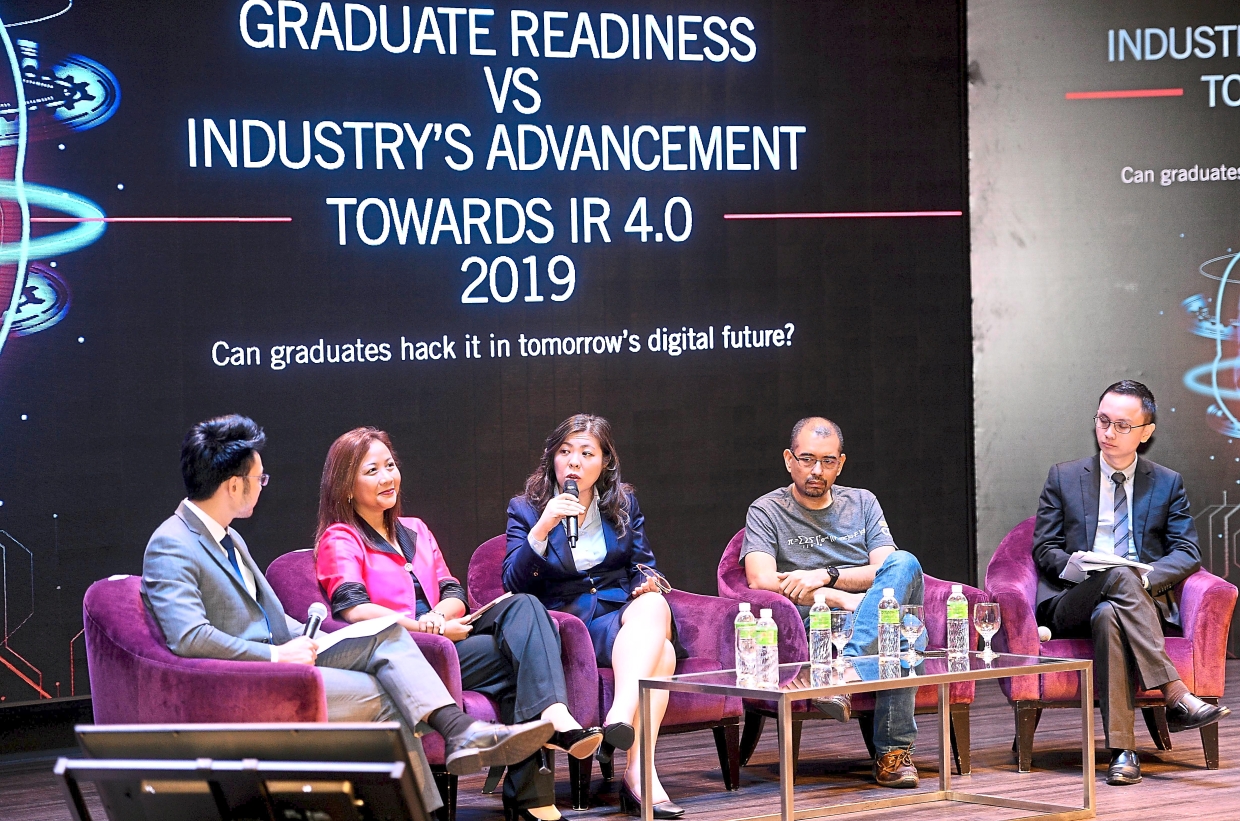
Digital Transformation
A recent International Data Corporation (IDC) whitepaper suggests that existing and future talents are unable to appreciate the significance of digital transformation and its impact on future jobs and competencies in a digitally-enabled workforce.
The study, a collaboration with INTI International University and Colleges, is based on a survey of more than 560 respondents, including students, graduates and parents.
INTI acting chief executive Tan Lin Nah said the study was unique in that it spoke about talents’ perceptions of IR4.0, rather than government and industry experts.
“The findings are a wake-up call that while technological change is taking shape in the country, young people are yet to keep up with its impact on their future.
“It shows that both education and industry still have much to do in building our talent pipelines to be globally competitive in an IR4.0 world,” she said.
While IR4.0 has been a buzzword over the past three years, more than half (63%) of student and graduate respondents were unable to articulate what it entailed.
A total of 54% of parents surveyed admitted they lack a clear definition and ability to discuss IR4.0 and its relevance to organisational transformation.
A panel discussion on the study, however, agreed that the issue was not about whether talents could precisely define IR4.0, but stressed the importance of inculcating the emerging workforce with a combination of skills, critical and design thinking abilities as well as technological skill sets built for the future.
The panel, held at INTI’s Subang campus, was titled “Graduate Readiness vs Industry Advancement Towards IR4.0: Can Graduates Hack it in Tomorrow’s Digital Future?”
It comprised Tan, IDC Asia Pacific research manager Jensen Ooi, PwC Malaysia human capital executive director Salika Suksuwan, Maybank innovation head Amran Hassan and Human Resources Development Fund Malaysia research and development department research unit head Wong Chan Wai.
“There is a gap in skill sets between universities and employers’ needs, but universities can’t equip graduates with all the skills they need.
“The industry does play a role in upskilling and reskilling talents as there are skills that can only be acquired when in an organisation,” said Wong.
Tan concurred that IR4.0 as a term has been “bandied around” but the truth of the matter was whether “you know or don’t, you’re already living it.”
A question that came up was, how do we teach for jobs that aren’t here yet, for tech that hasn’t been introduced yet?
“There’s space for technical skills, but the focus should be on the ability to think through problems and solve them using whatever tools we have – such as ICT – and use it in the most practical way.”
Salika also elaborated on the need for talents to be equipped with soft skills, including adaptability, a growth mindset and agility to embrace change and learning.
“It has to be a combination of human and digital skills. The hard or technical skills are not as vital, although still necessary,” she said.
Meanwhile, Amran offered a different opinion as he stressed the need for technical specialisation.
“It is impossible for universities to produce ‘ready-made’ graduates.
“To prepare students for today’s workplace, they need to understand that being a generalist is no longer possible and that they need focus on technical skills.
“For example, deep skills in technology, finance or accounting and really understanding it will allow them to later disrupt the industry with technology.”
Source: www.thestar.com.my/metro/metro-news/2019/08/21/young-people-unprepared-for-digital-transformation
Comment: Much has always been said about graduates not ready for the industry, due to various reasons like out of date syllabus, equipments, insufficient hands-on time etc. Models like training institutions collaborating with industry where students are trained theoretically at institutions & remaining hours at the industry’s workplace (SLDN) is a great way to train students which are industry ready. One of the successful example implementing SLDN is 7-Eleven.
Another model that’s under explored is teaching factory, where even the theoretical portion is conducted at workplace/factory. Of course, this would need major commitment from the industry and someone has to enlightened them the cost benefits of investing in such a model, where they do not need to spend time & resources to re-train graduates if they are from the conventional model (graduate 100% from training institutions/universities).
Another example of a successful model (100% employability as claimed by the College) is Peninsula College’s Jom! Bekerja Sambil Belajar (JBSB) Programme, which gives students the opportunity to work part-time at PKT Logistics Group’s warehouse, finance and human resources departments.